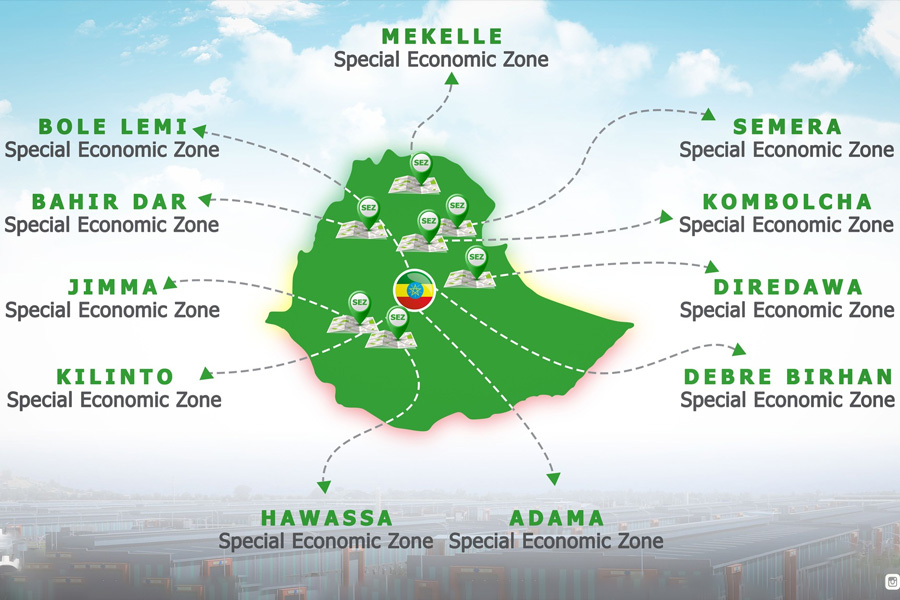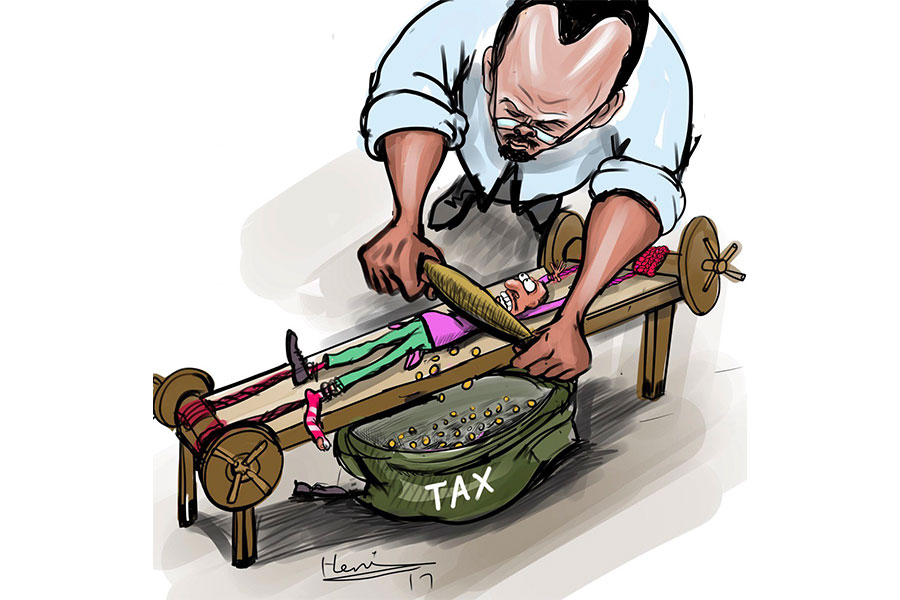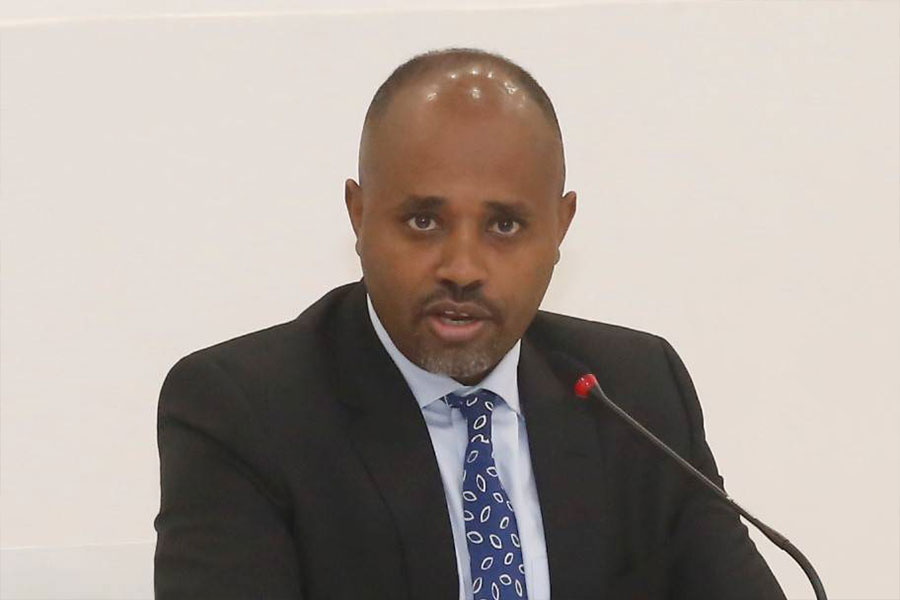
Radar | Apr 13,2025
Apr 1 , 2023
By Owen Gaffney
The Intergovernmental Panel on Climate Change (IPCC) has issued a final warning to humanity. Unless we halve greenhouse gas (GHG) emissions by 2030, we will have no chance of capping global temperatures at 1.5° Celsius above pre-industrial levels. Achieving that target will be extremely challenging, but it is both possible and affordable – if we ensure that the world's wealthiest pay their fair share.
Inequality has skyrocketed in recent years. During the pandemic, as more than 160 million people were pushed into poverty, the world's 10 richest people doubled their fortunes. The wealthiest 10pc of the global population now rake in 52pc of global income and hold 77pc of global wealth, while the poorest 50pc claim just eight percent and two percent, respectively.
The gap continues to widen. Billions of people suffer from rising living costs and stagnant wages, and with a recession looming, prospects for achieving greater prosperity appear bleak. The world has never been so wealthy, yet most people endure chronic economic insecurity. This is a recipe for deeply polarized, dysfunctional societies, democratic decay, and a dangerously unstable world.
Economic inequality is reflected in climate inequality.
The IPCC notes that the 10pc of households with the highest per capita emissions – the wealthiest households globally – contribute up to 45pc of consumption-based household GHG emissions. The bottom 50pc – four billion people, many of whom face severe energy insecurity – contribute just 13-15pc.
Here, too, the gap is continuing to widen: the richest one percent – 63 million people earning at least 109,000 dollars per year – are the fastest-growing source of carbon emissions by far. And this is happening at a time when, every month, the world is burning through more than one percent of its remaining carbon budget to limit global warming to 1.5°C.
But the discrepancy in emissions is only part of the story.
As the IPCC's new report highlights, there is overwhelming scientific evidence showing that an equitable approach to climate action, in which the benefits and burdens of the needed transformation are distributed fairly, is vital to building social trust, without which the 2030 target will be all but impossible to meet.
This aligns with our assessment at Earth4All. Unless concerted action is taken, we predict that inequality will continue to grow throughout this century, leading to rising social tensions and unrest – and making it far more difficult to tackle existential crises like climate change.
The concentration of wealth leads to the concentration of power, with the wealthiest actors enjoying disproportionate influence over elections and public policy. This undermines trust in democracy, making it more difficult for governments to make long-term decisions that serve the common good. More egalitarian countries tend to have higher levels of trust in government and better outcomes when it comes to education, health and longevity, obesity, child mortality, crime, and the environment.
As the IPCC report makes clear, averting the worst effects of climate change demands a profound economic transformation in the next decade. But that transformation can succeed only with broad public support, based on a new social contract ensuring a fairer wealth and income distribution.
Specifically, by 2030, Earth4All proposes that the wealthiest 10pc in all countries should be claiming less than 40pc of national incomes, with their share remaining on a downward trajectory thereafter. Past experience shows that progressive taxation on both income and wealth for individuals and corporations would effectively achieve this.
This means targeting the assets of the extremely wealthy wherever they are held, including in tax havens, and developing and sharing national registries of assets held in different forms. Governments should also hike taxes on luxury-related consumption that drives GHG emissions, such as using private jets.
In addition, we recommend implementing a universal minimum corporate-tax rate that is close to the global average of 25pc – far higher than the 15pc rate agreed by the G20 in 2021. Multinational corporations should be subject to the same tax rates as domestic companies, with unitary taxation of global profits based on each country's share of sales, employment, and assets.
We also propose taxing windfall profits in sectors like energy. While the world has confronted an energy crisis driven by the war in Ukraine, fossil-fuel companies should not have been able to pocket hundreds of billions of dollars in profits. Likewise, governments must close international tax loopholes and eliminate outsize subsidies on gossip fuels – now topping one trillion dollars annually – once and for all.
The IPCC estimates that removing subsidies could lower GHG emissions by up to 10pc by 2030.
More broadly, governments should use progressive taxation to discourage share-buyback schemes. At a time when the world needs innovation to facilitate economic transformation, inflating shareholders' gains must not come before investment in research and development.
Crucially, whatever progressive wealth and income taxes generate additional revenues must be used to protect the most vulnerable groups, support those who are displaced by the green transformation, advance gender equality, and overhaul energy and food systems.
By easing social tensions and improving well-being, progress on inequality would make democracies more stable and resilient, enabling them to respond to shocks more effectively and make rational long-term decisions for the common good, not least with regard to climate change.
But, as the IPCC has made clear, time is running out.
PUBLISHED ON
Apr 01,2023 [ VOL
23 , NO
1196]


Radar | Apr 13,2025

Fortune News | Jan 03,2025

Radar | Dec 08,2024

Fortune News | Aug 20,2022

Fortune News | Apr 19,2025

Editorial | Jul 19,2025

Viewpoints | Feb 24,2024

Agenda | Nov 24,2024

Radar | Sep 04,2021

Editorial | Apr 26,2025

Photo Gallery | 177245 Views | May 06,2019

Photo Gallery | 167450 Views | Apr 26,2019

Photo Gallery | 158086 Views | Oct 06,2021

My Opinion | 136976 Views | Aug 14,2021
Commentaries | Oct 25,2025

Dec 22 , 2024 . By TIZITA SHEWAFERAW
Charged with transforming colossal state-owned enterprises into modern and competitiv...

Aug 18 , 2024 . By AKSAH ITALO
Although predictable Yonas Zerihun's job in the ride-hailing service is not immune to...

Jul 28 , 2024 . By TIZITA SHEWAFERAW
Unhabitual, perhaps too many, Samuel Gebreyohannes, 38, used to occasionally enjoy a couple of beers at breakfast. However, he recently swit...

Jul 13 , 2024 . By AKSAH ITALO
Investors who rely on tractors, trucks, and field vehicles for commuting, transporting commodities, and f...

Oct 25 , 2025
The regulatory machinery is on overdrive. In only two years, no fewer than 35 new pro...

Oct 18 , 2025
The political establishment, notably the ruling party and its top brass, has become p...

Oct 11 , 2025
Ladislas Farago, a roving Associated Press (AP) correspondent, arrived in Ethiopia in...

Oct 4 , 2025
Eyob Tekalegn (PhD) had been in the Governor's chair for only weeks when, on Septembe...

Oct 25 , 2025 . By YITBAREK GETACHEW
Officials of the Addis Abeba's Education Bureau have embarked on an ambitious experim...

Oct 26 , 2025 . By YITBAREK GETACHEW
The federal government is making a landmark shift in its investment incentive regime...

Oct 26 , 2025 . By NAHOM AYELE
The National Bank of Ethiopia (NBE) is preparing to issue a directive that will funda...

Oct 26 , 2025 . By SURAFEL MULUGETA
A community of booksellers shadowing the Ethiopian National Theatre has been jolted b...